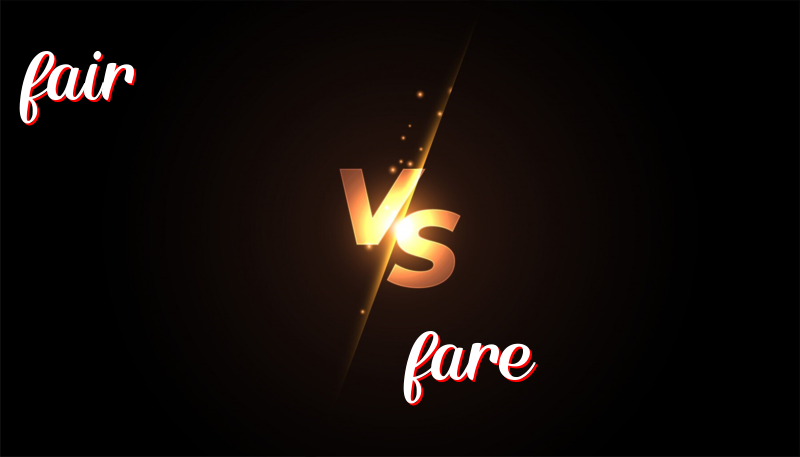Distinguishing Between Fair and Fare: A Simple Guide for English Learners
Understanding the Difference between “Fair” and “Fare”
The words “fair” and “fare” sound the same but have different meanings and uses. Let’s explore their histories, meanings, and how to use them.
History and Meaning
Fair: This word has been around for a long time. It comes from old English and means something that is right or good. It can also mean a fun event with games and rides.
Fare: This word is also from old English. It means the money you pay to travel in a bus, train, or taxi. It can also mean how someone does or performs.
How to Use “Fair”
Here are some ways to use “fair” in sentences:
- The teacher gave a fair grade to all the students.
- The team had a fair chance to win the game.
- We went to the fair and rode on the Ferris wheel.
- It is fair to share your toys with your friends.
- The weather today is fair and sunny.
How to Use “Fare”
Here are some ways to use “fare” in sentences:
- The bus fare is two dollars for a one-way trip.
- She paid the taxi fare before getting out of the car.
- I hope you fare well in your new job.
- The fare for the train is cheaper at night.
- The food at the restaurant is traditional fare.
Trick to Remember the Difference
Think of “fair” as something just or right, and “fare” as something you pay for a ride. You can remember this because “fare” has an “e” like in “fee,” which you pay.
Summary
“Fair” is about being right or good, like when something is equal or when there is fun, like at a fair. “Fare” is about the cost you pay for travel or how well you do. Remembering these differences can help you use the right word in your writing and speaking.

Leave a Reply
You must be logged in to post a comment.